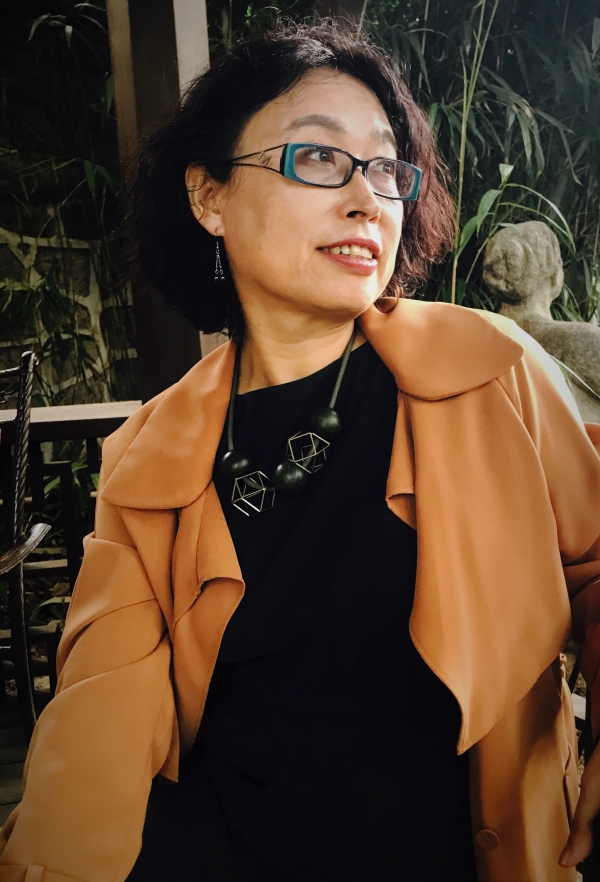
Three years after Korea was freed from Japanese occupation of World War II, the people of Jeju Island firmly opposed the 1948 South Korean Constitutional Assembly election. They were certain that this was a deliberate move from the U.S. backing the South Korean government to divide the Korean peninsula. Their disobedience and in a sense “rebellion” against the powers led to a civilian catastrophe perpetrated by their own government. Over 30,000 people were either killed, went missing or suffered from the burning of over 300 villages.
Included in these casualties was author Yang Kyeong-in’s mother, who was orphaned during the crisis. In memory of this tragic event, the Jeju 4.3 Peace Literary Awards are held each year. This year, Yang Kyeong-in was awarded for her non-fiction writing “Life of a Jeju 4.3 Female Activist.” Living through those dark days through her mother, Yang was always concerned by the fact that this tragic event was not taught in schools or even widely acknowledged in Korean society.
“Life of a Jeju 4.3 Female Activist” is a documentation of the real life experiences of Kim Jin-eon, an activist that supported the socialist movement in 1948 against the U.S backed Korean government of the time. Yang took inspiration from Kim’s life and aimed to write about how women saw the country’s independence and was motivated to gain independence from Korea’s traditionally patriarchal society as well.
“I heard that a senior was released after serving a 25-year sentence and had returned to her hometown, Jocheon-myeon Bukchon-ri, a village struck with the most severe damage during Jeju 4.3,” Yang said.
This is where documenting Kim’s story began for Yang.
Kim’s courageous fight and pursuit of a better life had drawn Yang to document her life story.
“While documenting people’s experiences from Jeju 4.3 with my colleagues, it dawned on me that there ought to be an official research institution where Jeju 4.3 can be properly recorded,” Yang said.
This led to the development of the Jeju 4.3 Research Institute, which aims to preserve the historical memory of the lives that were lost and changed on that fateful date. Yang started as an assistant administrator for the institute and is now the director, zestfully continuing her work as a writer as well.
In the year 2000, President Kim Dae-jung signed the Jeju 4.3 Special Law, which is a law acknowledging the event by investigating what had specifically occurred during that time. It also officially registered the victims and their families and allocated financial aid. Although the law was rectified several times, there were still some shortcomings. People demanded retrials for those who were unfairly or falsely convicted and served sentences for Jeju 4.3. They also demanded further financial compensation for the families of the victims.
Throughout this time, Yang participated in multiple protests for further revisions of the law in front of Korea’s National Assembly Building. Through these efforts made by Yang and other activists, the National Assembly passed the amendment satisfying their demands in February 2021. As South Korea slowly comes to terms with the tragic event of Jeju 4.3, the event has found its way into history textbooks and is becoming a subject for discussions. Yang hopes that the lessons learnt from Jeju 4.3 are remembered and held in high-regard in not just Korean history, but the Korean society as well.

